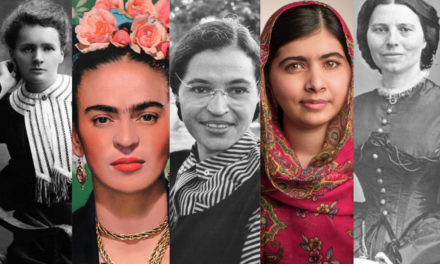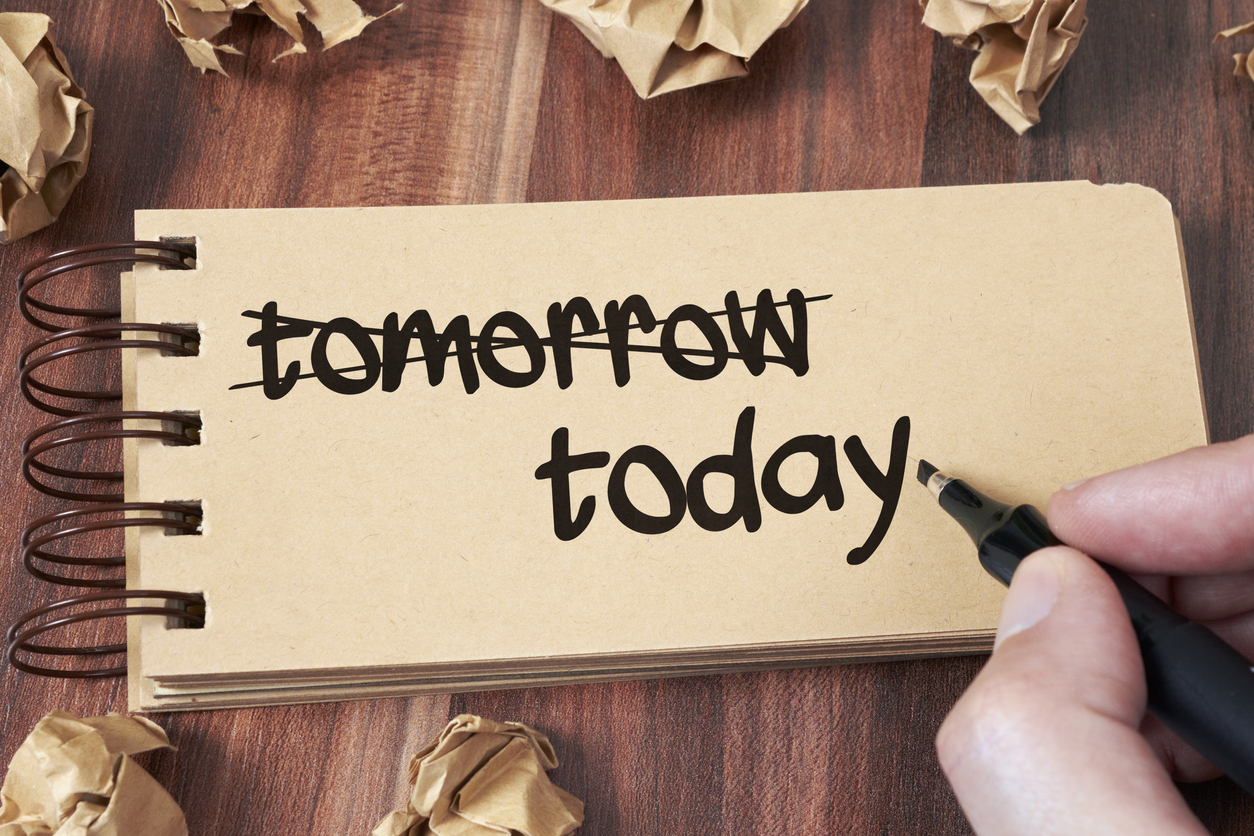Women Leaders Series
Connie Oliver
Vice President, Marketing & Communications
Solis Mammography
Connie. Give us a little personal background. Where were you born?
I was born in the small town of Lagrange, Indiana, where I lived with my mother and her family. When I was 3 years old, we moved to the Washington, D.C. area, which is where I went to grade school, high school, and eventually – the University of Maryland. The D.C. area is still where I call “home”, even though I enjoyed spending every childhood summer with family in Indiana, and have lived for the past 20 years in the Dallas-Fort Worth area.
Do you have siblings?
No. I was raised an only child with just my mom and myself.
I understand your mother is completely deaf. How did that impact you as a child?
While the list of influences my mother had on my life is extremely long, her deafness influenced me in two significant ways. First, I’m a very expressive communicator. I learned from a young age how important it is to tell a story in a way that others could understand. Learning to communicate effectively through sign language means more than a literal translation of the spoken word to sign. Rather, it’s a means of understanding how to translate the way we would say or express something verbally, to how a deaf person might better understand that same message through analogy, expression, or a slightly different turn of phrase.
 Whether coincidence or not, this became a life’s passion for me – translating to my love of the visual arts in cinema and theater, and in my chosen profession of marketing and communications.
Whether coincidence or not, this became a life’s passion for me – translating to my love of the visual arts in cinema and theater, and in my chosen profession of marketing and communications.
The second major influence my mother’s deafness had was in contributing to my growing up faster and younger than most of my peers. This was in the days before email, Internet, smart phones, texting, and FaceTime – all of which would have made a remarkable difference in her life and mine, at the time. But without those communication devices as an option, my mother relied on me as her link to the outside world.
I called the IRS at age 10 to ask questions about my mother’s tax returns. I interpreted at age 12 for the lawyers when my mother bought her first townhouse. And from as far back as I can remember, I served as my mother’s “voice” at restaurants, the post office, the airport, and any other places we needed to go or travel. This built in me a great deal of confidence that I could handle whatever was thrown my way just by having the courage to speak up, ask smart questions, listen and learn from what I heard, and always be willing to try something new.
How did you learn sign language?
I learned sign language the same way any child would learn their native language. When I saw a cookie, my mother signed “cookie”. When I pointed to a tree in the park, my mother signed “tree.” Piece by piece, I built my sign language vocabulary and eventually, pulled the signs together to create sentences, phrases, and full conversations.
Sign language was in fact, my first language and only method of communication until I was almost 4 years old. A family friend finally coerced me into learning to speak, refusing to give me a glass of water until I said the word. I finally caved in and barked the word at her, and the running joke is that I’ve been making up for lost time with my speech ever since!
Are you still fluent in sign language?
Oh yes, absolutely. My mother and I communicate regularly, whenever we visit, or through FaceTime on our iPads. The miracle of this “new” communication medium still amazes me, even though we’ve been using it for many years now. Others may take for granted how easy it is to talk to a parent or loved one on the phone. And while Mom and I had emailing (and before that, the TTY) to communicate – those don’t compare even a little to the quality of conversation that happens when two people communicating by sign language can see one another, face to face.
I was also fortunate that my children’s high school offered ASL as an option for their foreign language credit. All three of them took several semesters of ASL so that they could learn to speak more fluently with their grandmother. Unbeknownst to them, this is by far the greatest gift they’ve ever given her or me.
 What did your parents do for a living?
What did your parents do for a living?
While I’ve never known my father, my mother has always been a model of exceptional work ethic. She raised me on her own, without any financial support from anyone – and did so on a very limited income. She worked for more than 30 years in the airline industry, first for Allegheny Airlines, which later became USAirways. For many years, she was a keypunch operator (back in the days when that was a thing), and later, she moved into payroll processing. She taught me from a young age that “where there’s a will, there’s a way” and was very diligent about how she saved her money – and taught me the value of saving my own.
My favorite anecdote about my Mom is from when I was a freshman in high school, and really wanted a new dress for homecoming. She told me that she’d pay for half, if I could earn the money for the other half (which I did by babysitting.) To cover her half (she didn’t use credit cards), she asked her boss at work if she could take the reams of computer paper from the dot matrix printer that were being tossed in the trash. Her boss said it was fine, so she filled the trunk of her car little by little each day after work.
Every Friday, she’d drop the trunk full of paper at the recycling center near our home, and from those earnings – was able to pay for her half of the dress. That single example embodies so many of the wonderful traits I love about my mother — her work ethic, generosity, and selflessness – all of which I try hard to mirror every day.
Where did you go to school?
I started out at George Mason University in Fairfax, Virginia – but later transferred to University of Maryland at College Park. I graduated magna cum laude with a B.S. in Finance and Business Management. And while I’m proud to have graduated with honors, I’m even more proud of the much harder achievement — working 30+ hours a week through my entire college experience, financing my own education, and graduating without any debt.
You spent most of your career early on in the construction industry. What were some challenges (if any) working in a male dominated industry?
Oh, I do believe there is enough material here for an entire book! But I’ll keep it simple, and at a high level. First and foremost, it’s important to remember that I grew up without any male influences (no dad, no brothers, no close male relations.) Working in a male-dominated industry gave me firsthand exposure to how men think and process information very differently than women. I learned quickly that what was most valued was not what you said, but what you did and how your results contributed to the bottom line. This didn’t just mean financial results, but rather, what you contributed to the team effort – helping everyone work towards a common goal.
I learned to speak up when needed, but also felt the backlash of being “too outspoken”. I saw how others were often judged by a different standard, which at times was incredibly frustrating. However, it also was a driving force in making me work harder to prove my worth. My presentations had to be stronger, my rationale more logical, my work product better, and my work ethic unquestionable. My biggest takeaway from 25 years in the commercial construction industry is that when you’re competing on a unlevel playing field, it’s damn difficult for others to ignore you when you deliver outstanding results. My advice to those starting out: Let your work speak for you, and your gender (while never ignored) will take a backseat to the value you bring.
You decided to make a major career shift and go into the world of women’s healthcare. Tell us about that.
At the end of 2014, I decided to take a major leap of faith and exit my long-time career in marketing and branding for the commercial construction industry. I knew it was time to do something different, but also knew it was time to take some time off. For the first time since I was 13 years old, I was officially unemployed. I took a year to “reboot” and recharge. And when it came time to look for my next opportunity, I focused my search on non-profit organizations. I knew my strengths in marketing and communications could serve me well in any industry, but really wanted to find a more purpose-filled focus to my work. When I read the description for the position at Solis Mammography, I knew it was a terrific fit and eagerly applied for the position.
Why did you choose Solis?
Solis Mammography has given me a wonderful opportunity to apply my passion for marketing and communications to a business that is uniquely positioned – part healthcare, part retailer, and part non-profit.
First and foremost, the patients we serve come first. We are all about women’s wellness and promoting an environment of preventative health. Second, we understand that today’s woman is extremely busy and if we’re going to help her prioritize her health, we need to make the experience as easy as possible.
Many of the attributes of retail marketing are central to how we market at Solis. Examples include choosing convenient locations, allowing appointment times to be chosen online, sending text reminders, registering by iPad tablets, creating centers with a warm and welcoming environment, and delivering results fast – by email within 24 to 48 hours. Because in the end, we are competing for a woman’s discretionary time (the time she isn’t doing what she has to do for family or work, but chooses instead to do something for herself.) That won’t happen if we don’t make it easy, and even pleasant, to do something typically not considered to be enjoyable.
And finally, the position at Solis Mammography offers me an opportunity to serve my passion for advocacy – as we seek to educate women about the importance of screening, early detection, and self-knowledge. Because whether they choose Solis or any other provider, what is most important is helping women understand their own bodies so they make the choice that is best not for their insurance company, not for their neighbor, but for themselves.
What do you love most about your work?
On the days when the workload is intense and I’m trying to figure out how to juggle all that’s on my plate, I remember what it is I am fundamentally here to achieve. When I was interviewing for the position, my CEO said it best. “While we are a for-profit company, the fact is that for every dollar we earn, we are saving lives – and that’s a mission that matters.”
And while that mission is so important, I’ve learned that it’s about so much more. Helping women get their annual mammography screening doesn’t just help preserve longevity of life, but helps protect quality of life. Because the earlier a woman knows that there is something about her health that needs attention, the better her options are for treatment. Simply stated, early detection can reduce the need for more invasive treatments like chemotherapy or surgery – saving a woman time, stress, and money. Educating women about this crucial ‘quality of life’ benefit is something that underpins everything I do, and drives me forward.
Who is a professional hero of yours?
This one is hard because I really want to point to a female executive who was a hero in helping me learn and grow in my professional journey. However, that just hasn’t been my experience. When asked to consider who has been a professional hero, one name stands above the crowd – Robert Van Cleave, my CEO and boss at Centex Construction and Balfour Beatty Construction. I worked with Robert for more than 22 years and never failed to marvel at his work ethic, integrity, and genuine care and compassion for people. No matter their role in the company, he greeted everyone by their first name. If he discovered he didn’t know their first name, he made it his mission to find out who they were, what their role was, and even a little about their family.
This started with a relatively small number of people (about 200) but grew as our company did – ultimately to more than 2,500 people across the U.S. He served as a constant reminder of what it means to “lead by example” in all that he did. He avidly avoided any special treatment that other CEO’s might expect as usual perks of the job. He constantly sought ways to affirm others and make them feel valued and appreciated. And lastly, he was famous for his handwritten thank you notes for contributions both large and small. I’m so grateful to have had his model of servant leadership for so many of the developmental years of my career.
What is your definition of success?
There is a great saying that goes something like this: “In a hundred years, no one will care what kind of car I drove, what sort of house I lived in, or how much I had in my bank account. But the world may be different because I was important in the life of a child.” As a mother of three, I’ve always loved this quote as a reminder of the important role mothers play in society. But beyond this, I believe success is measured by the difference we make in the lives of others. Finding ways to serve – through my work, my values, and in how I spend my free time … this is how I measure success.
Please leave us with your favorite quote.
I am a big fan of inspirational quotes (just ask my husband, who is always joking about how many are around our home.) But my favorite is easy. It’s by Eleanor Roosevelt who once said, “No one can make you feel inferior without your consent.” As a female leader in the often male-dominated world of business, it is a constant reminder that you do not have to own others’ opinion of you as truth. You can work to influence and change their opinion (seeking to gain their respect) – but in the end, your belief in who you are and what you contribute, that’s what matters most.
Connie, thank you for your time.
For more information go to:
www.solismammo.com












